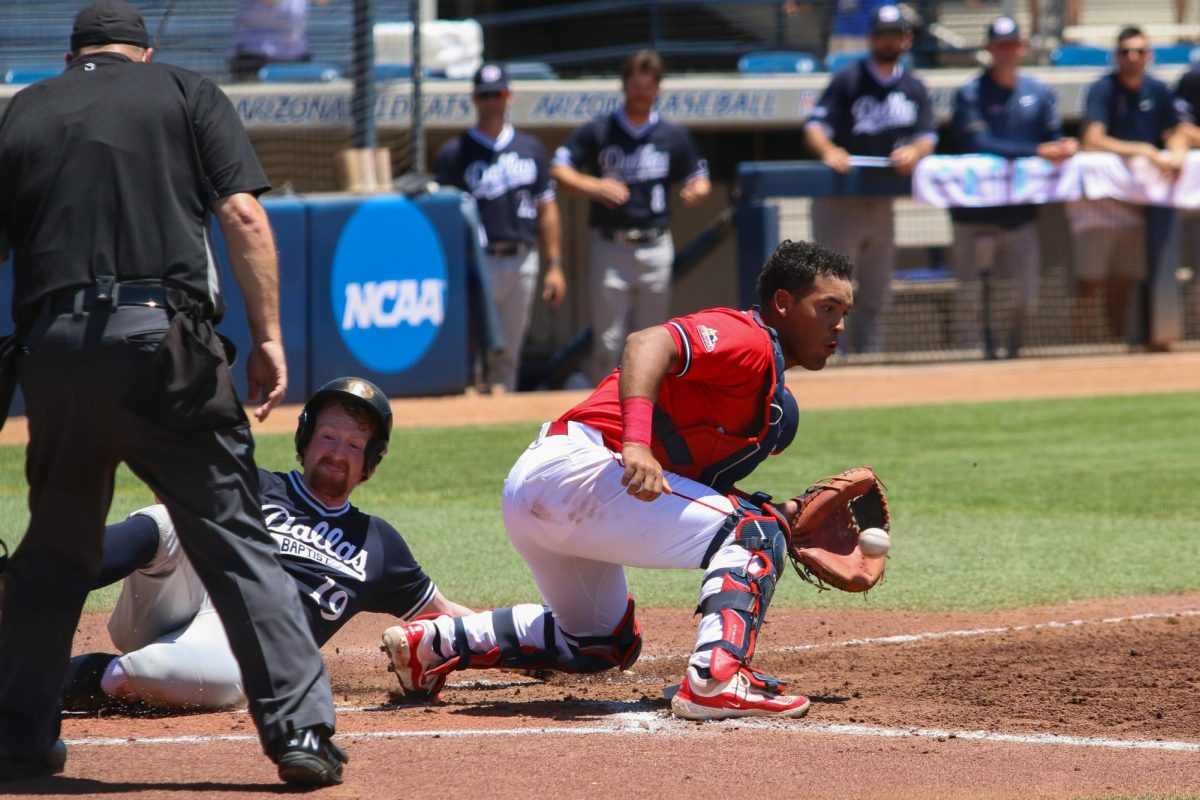When Robert Shelton met with Gov. Jan Brewer last week in the UA president’s office, the encounter lasted 35 minutes. Shelton did not get off so easy in last night’s discussion with the Graduate and Professional Student Council.
In the president’s second-ever address to the graduate leadership, a group of 60 students flung question after question at the waiting Shelton in an event that lasted more than two hours at the College of Law.
With Arizona and the university system in a state of economic uncertainty, students worry about the UA’s fiscal future, along with their already growing pile of personal responsibilities and schoolwork, said Hope Jones, a doctoral student from the College of Science.
“”I think I want to point out specifically, it really shouldn’t be our full time job – it’s yours,”” Jones told Shelton. “”And regardless of student input, you have to be our greatest ally and our loudest voice.””
Shelton continually outlined the need for financial and academic balance in a time of crisis for Arizona’s higher education, saying that concessions must be made at certain levels in order to carry on the quality of the university.
“”We can’t pretend like we can do everything we’ve done in the past,”” he said. “”I don’t think anyone’s going to be held harmless.””
Sustaining 14 cuts in the last 16 years, the UA’s $440 million state-funded budget has been cut down to $363 million, due in large part to the state’s $3 billion budget gap. The prospect of inevitable university cuts is especially troubling to graduate students, as they are already underrepresented in the university system.
“”The graduate students have a very specific set of needs,”” said Amanda Durbak, a plant science graduate student.
Durbak said such needs are severely underfunded, as GPSC’s undergraduate counterpart, the Associated Students of the University of Arizona, receives $1.3 million per year in funding, while GPSC is only allotted $100,000.
Shelton also entertained questions regarding how prospective graduate students should view the state of the university heading into the future.
“”Tomorrow afternoon, I am having lunch with a prospective graduate student,”” said Vincent Lonij, a physics graduate student. “”With an eye on the future and an uncertain financial situation for the university … what can I tell him about his financial future?””
“”I think what you ought to tell a student is obviously what you’re experiencing, but I hope you will see what comes out of this transformation plan is the following – we are not, not, not going to make across-the-board reductions,”” Shelton responded. “”We are going to eliminate certain things that we don’t do well, that we don’t need to do for the state of Arizona, we don’t need to do as a land-grant institution.””
While adequately dealing with the current budget crisis requires a tireless balancing act between priorities, the fate of Arizona’s universities is still largely left up in the air to be debated by the state legislature and the governor’s office, Shelton said.
“”There’s a lot of games going on – a lot of games that are very serious games,”” he said. “”People’s careers, people’s jobs are at stake.””
Although much of the conversation focused on the future doom and gloom that may befall graduate students in the wake of a statewide budget crisis, GPSC President-elect David Talenfeld gave his fellow graduates a message of optimism to take into the challenges of tomorrow.
“”The transitions underway are going to place unprecedented educational, infrastructural, environmental and administrative challenges on us,”” he said. “”But they are also going to present untold opportunities for those of us with the will and the ability to serve the broader community. I think you guys are those people.””
The challenges that lie ahead will not simply disappear; they must be dealt with swiftly and wisely by the very people who walk the UA every day, Talenfeld added.
“”I hope you know how fortunate I think you are … learning how to be leaders at the best university in the fastest-growing state in what I think is the greatest country on the planet,”” he said. “”So with that said … we’ve got a lot of work ahead of us, so let’s get to it.””








